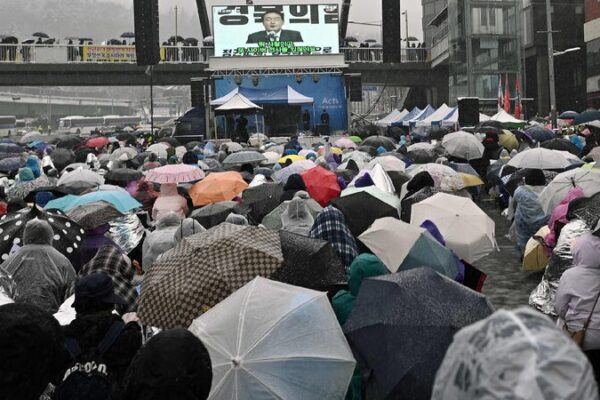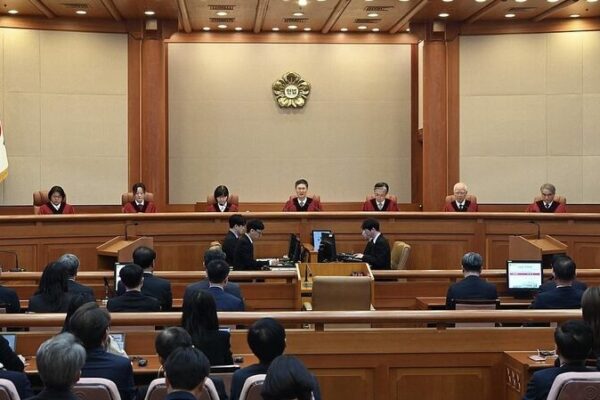South Korea is facing an unprecedented political crisis after impeached President Yoon Suk-yeol resisted arrest over a failed martial law declaration. The nation’s streets have become a battleground of supporters and opponents, highlighting a deepening divide in society.
David Tizzard, an assistant professor of Korean studies at Seoul Women’s University, notes that this turmoil isn’t just about politics—it’s about the physical spaces where these clashes are happening. “We have the politics of space coming back to real life,” he said. “Supporters and opponents of Yoon are taking to the streets to make their voices heard.”
The crisis escalated when President Yoon declared martial law on December 3, leading to widespread condemnation. On December 14, the National Assembly impeached Yoon, suspending him from office. The country now awaits the Constitutional Court’s decision, leaving its political future uncertain.
Yoon’s resistance to arrest on charges of insurrection, linked to his alleged use of force to block legislative votes, has intensified public outrage. A six-hour standoff occurred at the presidential residence when investigators attempted to arrest him, only to be turned away by his security detail and supporters.
“It’s really almost impossible to see how things move forward,” Tizzard remarked, emphasizing the unprecedented nature of this deadlock between political and legislative institutions.
The crisis comes during a national mourning period for victims of a recent airplane crash, adding to the nation’s grief. “Political leaders are meant to inspire and lead us forward with messages of hope, yet we see such division,” Tizzard said.
Public sentiment is playing a critical role. “It’s a populist country. We need to see what happens with the people. Will they continue protesting, or will they return to work?” Tizzard questioned, highlighting the fast-paced nature of South Korean society.
Einar Tangen, a senior fellow at the Taihe Institute, believes President Yoon is attempting to delay proceedings in hopes of swaying public opinion. “Delay, delay, delay. I think he is hoping that somehow public opinion will come over to his side. It is highly doubtful,” Tangen said.
While Yoon has strong support among older generations, younger South Koreans and the majority, as reflected in polls, do not share this sentiment. The charges against him are severe, accusing him of authorizing force to remove legislators from parliament. “That does not sound like a legal way of doing things,” Tangen commented.
Despite the political upheaval, Tangen suggests that South Korea’s major corporations, or “chaebols,” are unlikely to be significantly affected. Companies like Samsung plan years in advance and are expected to weather the crisis without major disruptions.
As South Korea navigates this challenging period, the world watches to see how the nation will overcome its deepest political fissures.
Reference(s):
Analysts say resolution hard to find in South Korea's political crisis
cgtn.com








